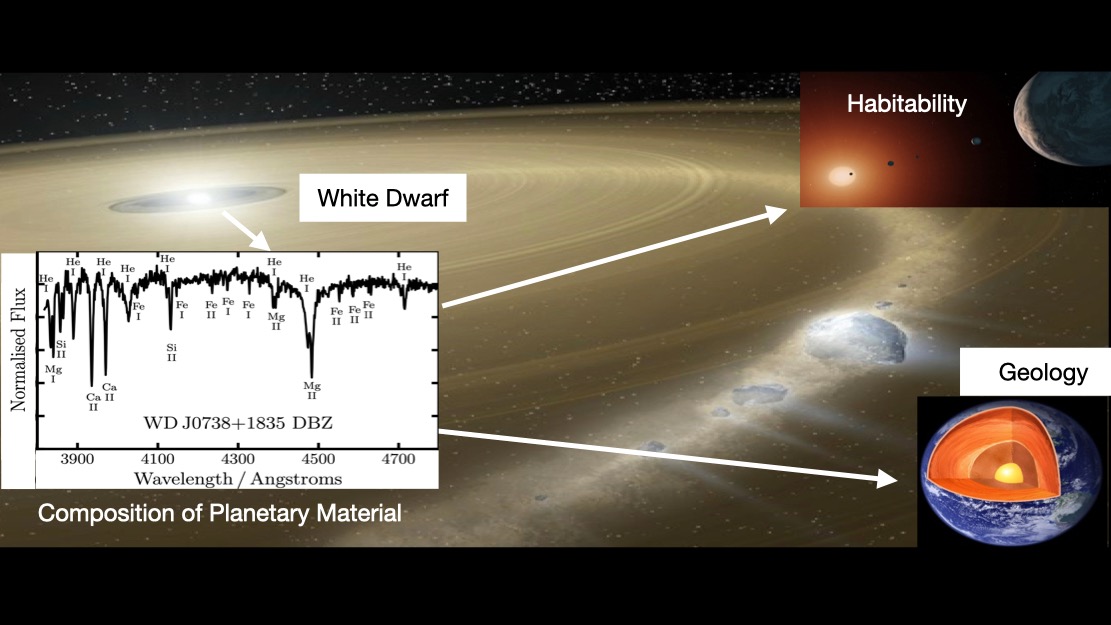With its suite of missions CHEOPS, JWST, ARIEL and PLATO, ESA will become the worldwide leader in enabling exoplanets research for the next two decades. In particular, the detection of rocky exoplanets will become commonplace, with PLATO leading the way. These planets tell us whether Earth-like planets and hence, potentially life, are common within the Universe. However, in order to understand the potential of these planets to host life, we need to probe their interiors, composition, atmospheres and geology. We propose to support ESA’s lead and to utilise a unique method to probe the composition and geology of exoplanets today. White dwarfs, the faint remnants of most planet-host stars, provide the perfect laboratory. We detect the presence of small (km-sized) chunks of planetary material in the spectra of white dwarfs, revealing the bulk composition of the material. Mg/Fe or Ca/Fe trace the geological process of core formation, whilst O/Fe or C/Fe tell us about volatiles. Not only can we trace the composition of the planetary material in the photosphere, but we also trace emission from gaseous material arriving onto the white dwarf. For this project, we propose a post-doctoral researcher co-funded between the University of Cambridge (Royal Society) and ESA, to exploit upcoming Hubble Space Telescope (HST) and existing Very Large Telescope (VLT) X-shooter observations to probe the composition of both the gas accreting onto the white dwarf and the material in the white dwarf atmosphere. These novel observations probe the geology and volatile content of the planetary material. Uniquely a comparison between the abundances in the gas and photosphere will tell us whether volatiles are accreted simultaneously with refractories. This is crucial to our interpretation of the abundances observed in the white dwarf photosphere. The outcome of the project will strengthen in Europe the objectives of a key research field of the ESA Science Programme.

